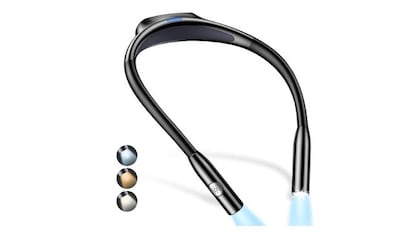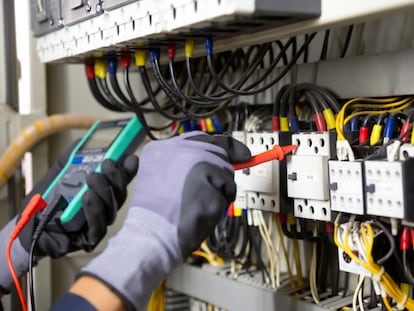Cable sobre las presiones a Suecia y España para que no vendan material militar a Venezuela
Washington da instrucciones a sus embajadas para presionar a Suecia y España para que no vendan material militar a Venezuela ante el temor de que pueda caer en manos de las FARC
| ID: | 220180 |
| Date: | 2009-08-10 21:32:00 |
| Origin: | 09STATE83014 |
| Source: | Secretary of State |
| Classification: | SECRET |
| Dunno: | 09BOGOTA2409 09STATE81957 |
| Destination: | VZCZCXYZ0015 PP RUEHWEB DE RUEHC #3014 2222149 ZNY SSSSS ZZH P 102132Z AUG 09 FM SECSTATE WASHDC TO RUEHSM/AMEMBASSY STOCKHOLM PRIORITY 0000 RUEHMD/AMEMBASSY MADRID PRIORITY 0000 INFO RUEHBS/USEU BRUSSELS PRIORITY RUEHMO/AMEMBASSY MOSCOW PRIORITY 0000 RUEHCV/AMEMBASSY CARACAS PRIORITY 0000 RUEHBO/AMEMBASSY BOGOTA PRIORITY 0000 |
S E C R E T STATE 083014 NOFORN SENSITIVE SIPDIS E.O. 12958: DECL: 08/10/2019 TAGS: PARM, PREL, XT, XM, RS, CO, VE, SW, SP SUBJECT: COMBATTING VENEZUELAN DIVERSION OF ARMS TO THE FARC REF: A. BOGOTA 2409 B. STATE 81957: REPORT OF U.S.- RUSSIA MANPADS EXPERTS MEETING Classified By: EUR/PRA ACTING DIRECTOR KATHELEEN MORENSKI FOR REASONS 1.4 (B) AND (D). 1. (U) This is an action request. Embassies Madrid and Stockholm see para 6. 2. (S/NF) Summary: In an August 3 telcon with the Secretary, Colombian President Uribe expressed concerns over evidence that three Swedish-origin anti-tank missiles sold to Venezuela were found in the possession of the Revolutionary Armed Force of Colombia (FARC). The Swedish Embassy in Bogota (Ref A) confirmed that the weapons were manufactured by Sweden and sold to the Government of Venezuela (GOV) in 1988. This incident has been widely reported in the press, and underscores growing ties between the GOV and the FARC. The matter is of concern to the Government of Colombia (GOC) and to us because the weapons were diverted from Venezuelan military stocks and because of other separate, compelling evidence of the GOV's support for the FARC. The GOC has taken an aggressive, fact-based approach in addressing the GOV's support for the FARC, and has requested USG help in urging all nations that have completed or are contemplating arms sales to Venezuela to take GOV support for the FARC into account, including reconsidering such sales. As current and upcoming EU Presidents respectively, Sweden and Spain are well positioned to raise awareness of this incident and to urge other EU members, as well as Russia, to strengthen transparency and accountability in arms exports to Venezuela. End Summary. 3. (S/NF) Background: According to Ref A, the GOC has seized three M-136 AT4 anti-tank missiles from the batch Sweden sold to Venezuela. The Swedish confirmed that these weapons were manufactured by Saab Bofors Dynamics of Sweden and sold to Venezuela in 1988. Since media reports about this incident broke out in July, the Swedish government has been actively working with Colombia to investigate how the diversion occurred. The Swedish Ambassador in Bogota failed to get a response from the Venezuelan Defense and Foreign Ministries to investigate how the Swedish-origin weapons ended up in the hands of FARC guerillas. On July 29, Colombian President Uribe issued a statement highlighting that Sweden had asked Venezuela to investigate, but the GOV had not yet responded. After initially claiming that the story was a Colombian fabrication, on August 5 Venezuelan President Chavez claimed that the missiles were stolen from a Venezuelan naval base fourteen years ago; he said Sweden had "fallen into (Colombian government's) play" and asserted his government would not be providing Sweden any further explanation. 4. (S/NF) Background continued: As highlighted in Uribe's July 29 statement, the Colombian government is also concerned about FARC interest in acquiring man-portable air defense systems (MANPADS). Given that Russia has begun delivery of sophisticated Igla-S MANPADS to Venezuela, over the last several months we have engaged at high levels with Russia to express our concerns over the possibility of the FARC acquiring them. In early March, Secretary Clinton raised the sale with Russian FM Sergey Lavrov, who promised that "surprise inspections" were in place to prevent unauthorized re-transfer of these systems. During a U.S.-Russian experts meeting on MANPADS held in Washington July 9-10 (Ref B), the Russian side promised a written response to our request for clarification of Lavrov's remark. We have also raised with Russia evidence of Russian-produced assault rifle ammunition sold to Venezuela and found in FARC caches, and have sought an investigation. WHA A/S Shannon presented this evidence, including photographs, to Russian Ambassador Kislyak May 28 and requested that Russia look into the matter. On August 6, WHA PDAS Kelly raised the issue again with Russian DCM Darchiyev, seeking an update on the Russian inquiry; Darchiyev said that the Russian government continued to investigate and would provide an update shortly. 5. (S/NF) The recovered Russian-origin ammunition in Colombia, the ongoing Russian sale of advanced Igla-S MANPADS to Venezuela, and the latest Swedish incident have all reinforced growing concerns about the risk of increasing proliferation of arms to terrorist and criminal organizations in the region. Part of our strategy to counter this, and to respond to the GOC request, is to engage directly with countries which have or potentially could export arms to Venezuela. Russia is the predominant arms supplier to Venezuela, totaling over $5 billion last year and growing. However, the latest Swedish incident underscores that older systems, including those supplied in the past by EU countries, can end up in the wrong hands, particularly as they are displaced in Venezuelan inventories by newer weapons acquired. To this end, the USG seeks to encourage Sweden and Spain, in their capacity as the current and upcoming EU Presidents respectively, to raise awareness of Venezuelan-FARC ties, to strengthen accountability and t ransparency within the EU over arms sales to Venezuela given these recent reports of diversions, and to take action in multilateral export control regimes. As appropriate, we will seek to keep the GOC apprised of our efforts. End background. 6. (SBU) Embassies Stockholm and Madrid are requested to convey at the highest appropriate level the following talking points. Embassies are also requested to encourage host governments to share their views on these points with the Government of Colombia: Talking Points for Embassy Stockholm: --We appreciate your efforts to work with Colombia and to press Venezuela for an explanation on how three M-136 AT4 anti-tank missiles Sweden sold to Venezuela in 1988 ended up in FARC stocks. --Diversion of conventional weapons, including MANPADS, to terrorist and criminal organizations, such as the FARC, presents a clear threat to peace and security in Latin America. --We prefer that EU members not transfer arms to Venezuela. If arms are transferred to Venezuela, we ask that EU Member States work to strengthen transparency and accountability measures for such exports, such as through post-shipment verification to ensure that the arms remain in Venezuelan hands. -- We are aware of and appreciate EU efforts to strengthen transparency and accountability via its Code of Conduct. --We encourage Sweden, in its capacity as EU President, to raise further awareness of this matter within the EU and through multilateral export-control mechanisms. --To that end, we urge Sweden to present a paper on the illegal transfer of Swedish arms from Venezuelan stocks, as well as Sweden's view of arms transfers to Venezuela, at the Wassenaar General Working Group in October. -- We would also urge you to raise these transfers with the Russian government. The United States has raised concerns with Russia about arms transfers to Venezuela. Sharing your experiences with the Russian government may encourage them to ensure that their weapons are not diverted. If asked about U.S. arms sales to Venezuela: --As you may be aware, U.S. persons are barred by statute from transferring arms to Venezuela, a consequence of a 2006 determination that Venezuela was "not fully cooperating" on counter-terrorism issues. Talking Points for Embassy Madrid: --Diversion of conventional weapons, including MANPADS, to terrorist and criminal organizations, such as the FARC, presents a clear threat to peace and security in Latin America. --We prefer that EU members not transfer arms to Venezuela. If arms are transferred to Venezuela, we ask that EU Member States work to strengthen transparency and accountability measures for such exports, such as through post-shipment verification to ensure that the arms remain in Venezuelan hands. -- We are aware of and appreciate EU efforts to strengthen transparency and accountability via its Code of Conduct. --We encourage Spain, in its capacity as EU President in 2010, to raise further awareness of this matter within the EU and through multilateral export-control mechanisms. --We would also urge you to raise these transfers with the Russian government. The United States has raised concerns with Russia about arms transfers to Venezuela. Sharing your experiences with the Russian government may encourage them to ensure that their weapons are not diverted. If asked about U.S. arms sales to Venezuela: --As you may be aware, U.S. persons are barred by statute from transferring arms to Venezuela, a consequence of a 2006 determination that Venezuela was "not fully cooperating" on counter-terrorism issues. 7. (SBU) Posts are requested to deliver demarche responses as soon as possible. POC for this activity is Nate Young (EUR/PRA): 202-647-7278; YoungNH@state.gov. Department appreciates posts' assistance. CLINTON |
Traducción automática. Puede que el texto traducido no sea fiel al original
Tu suscripción se está usando en otro dispositivo
¿Quieres añadir otro usuario a tu suscripción?
Si continúas leyendo en este dispositivo, no se podrá leer en el otro.
FlechaTu suscripción se está usando en otro dispositivo y solo puedes acceder a EL PAÍS desde un dispositivo a la vez.
Si quieres compartir tu cuenta, cambia tu suscripción a la modalidad Premium, así podrás añadir otro usuario. Cada uno accederá con su propia cuenta de email, lo que os permitirá personalizar vuestra experiencia en EL PAÍS.
¿Tienes una suscripción de empresa? Accede aquí para contratar más cuentas.
En el caso de no saber quién está usando tu cuenta, te recomendamos cambiar tu contraseña aquí.
Si decides continuar compartiendo tu cuenta, este mensaje se mostrará en tu dispositivo y en el de la otra persona que está usando tu cuenta de forma indefinida, afectando a tu experiencia de lectura. Puedes consultar aquí los términos y condiciones de la suscripción digital.




























































